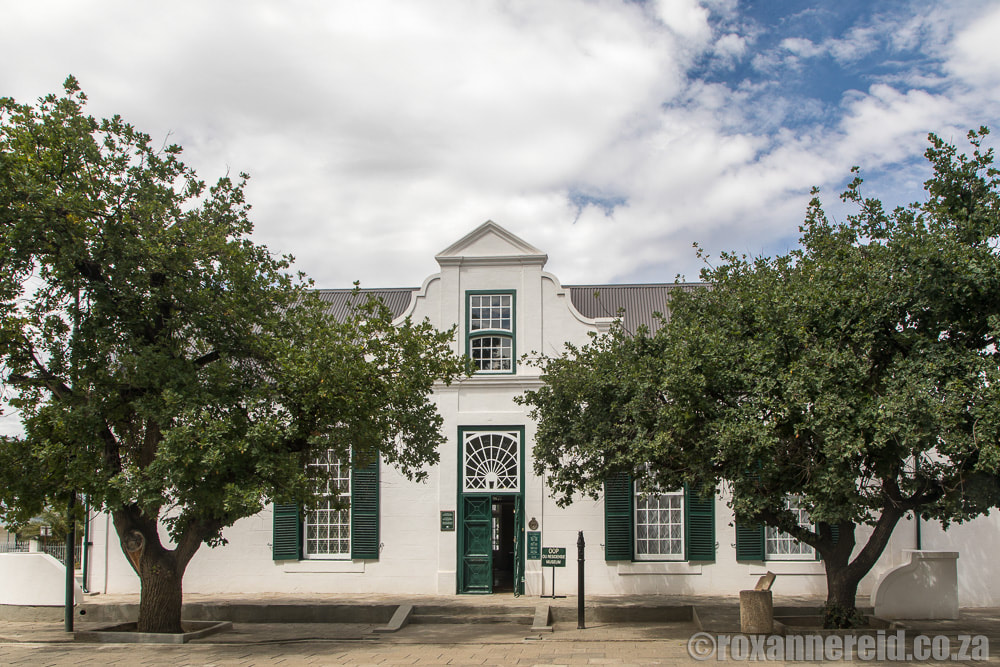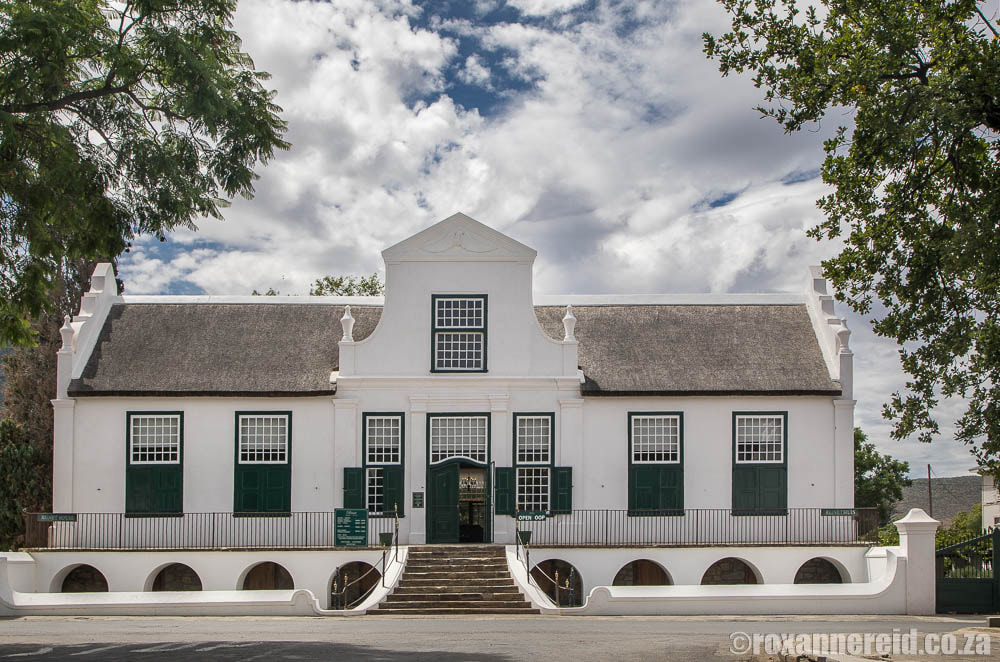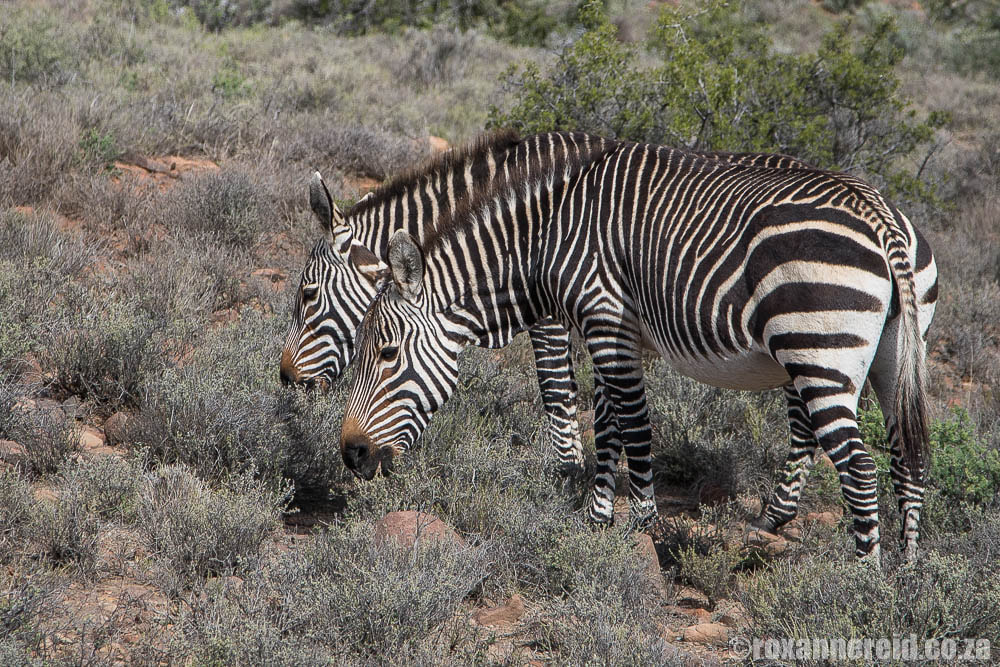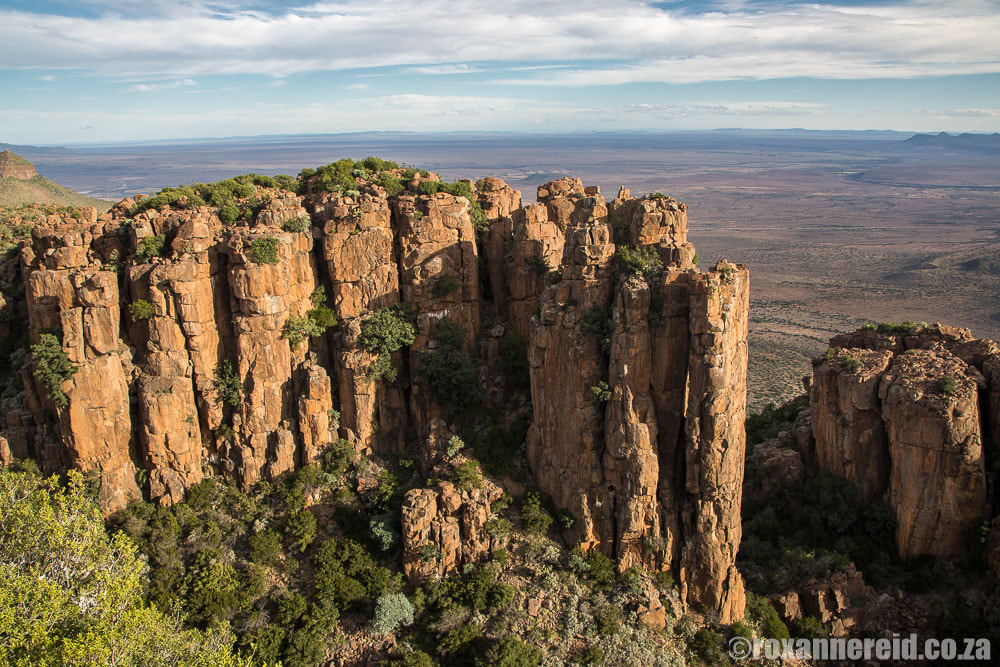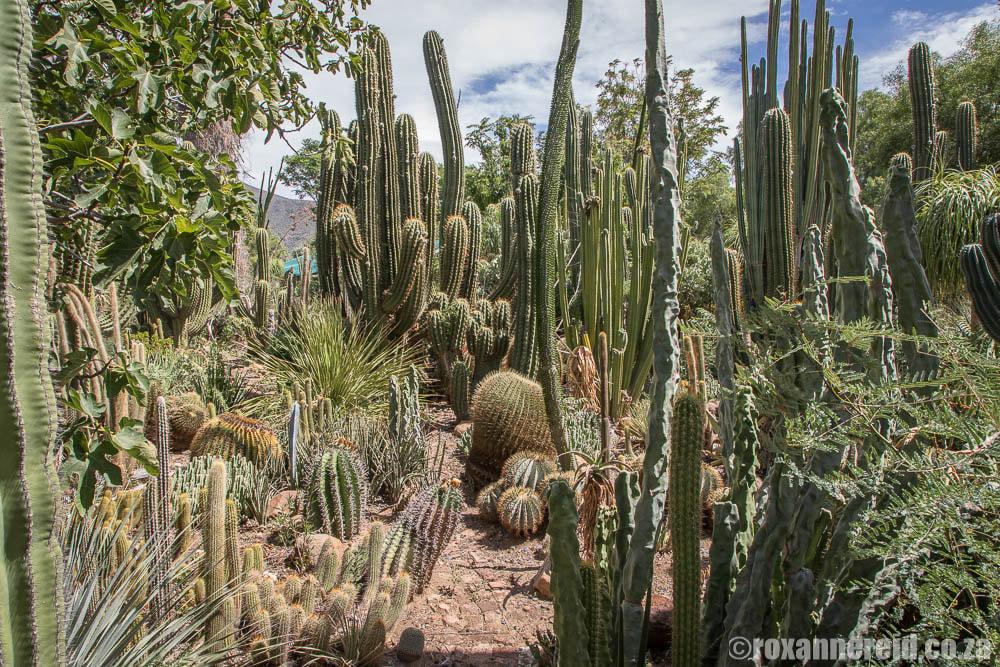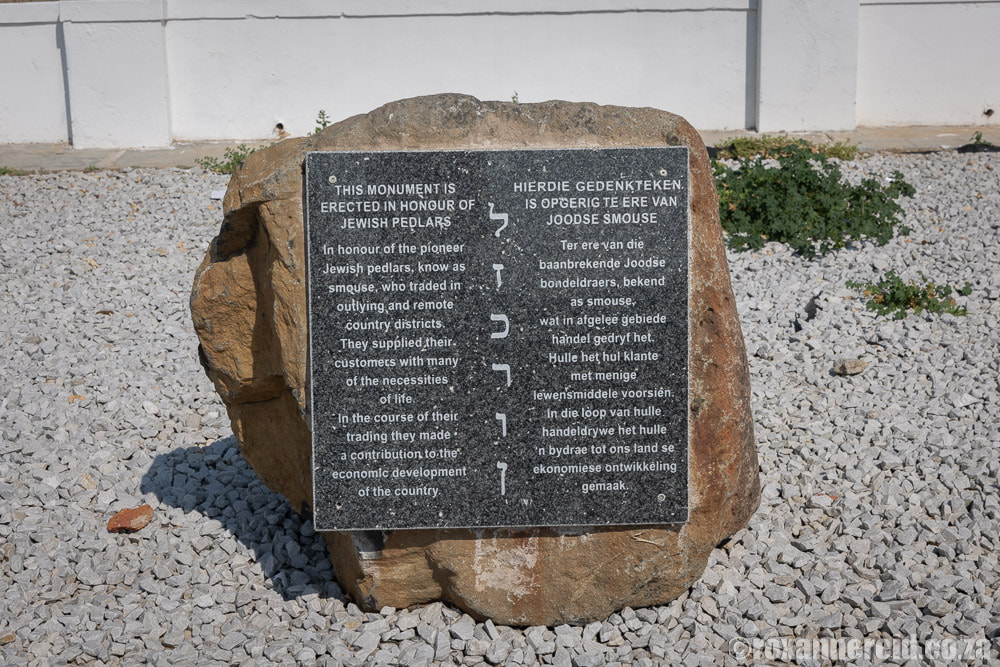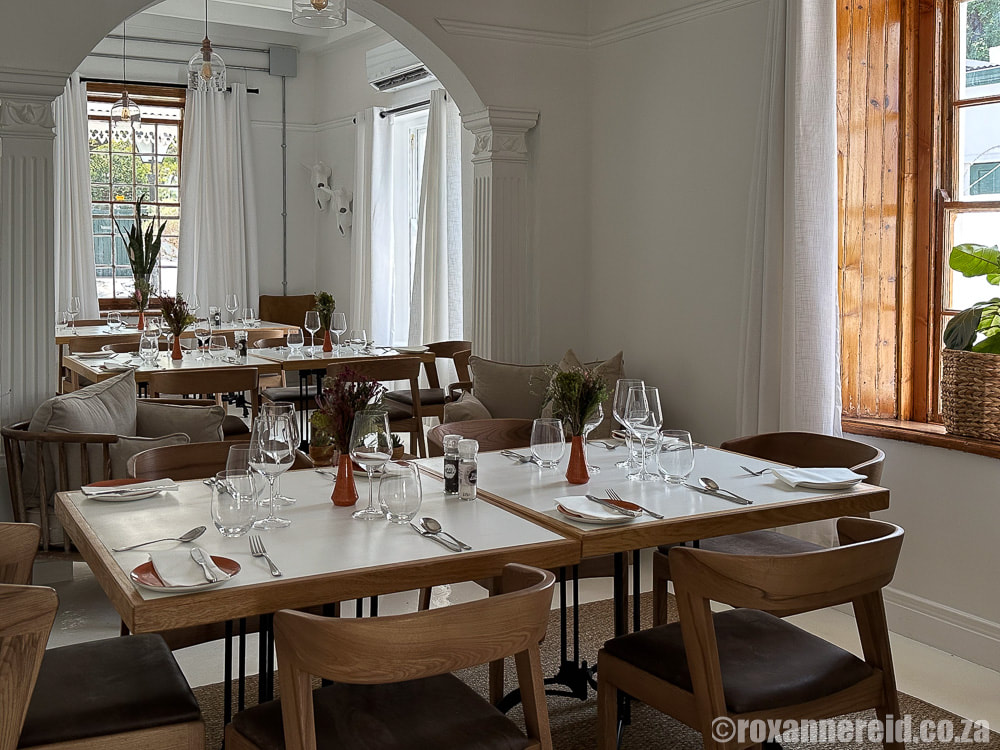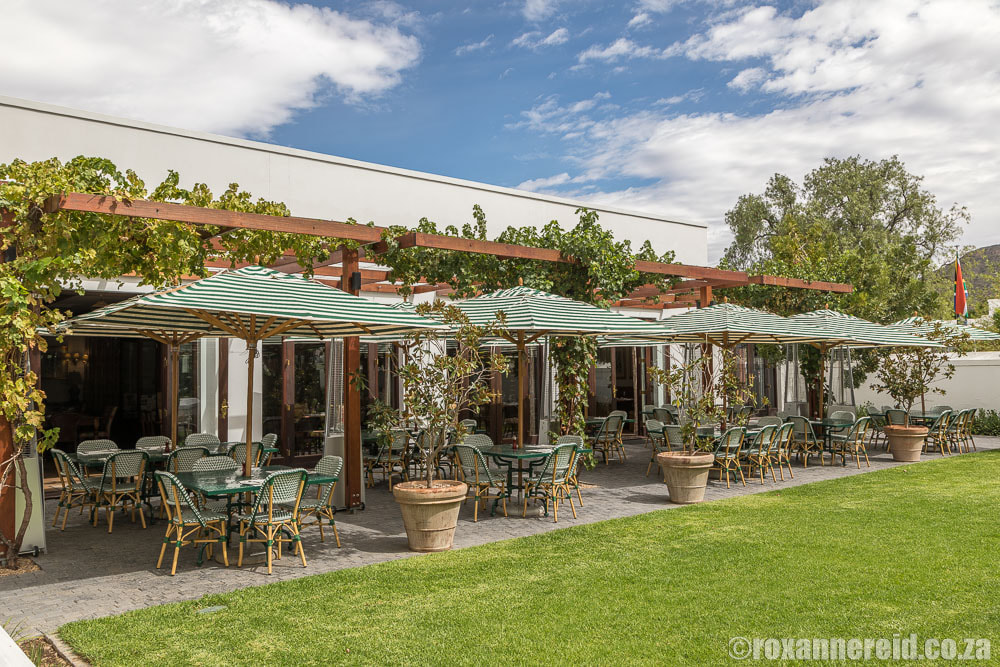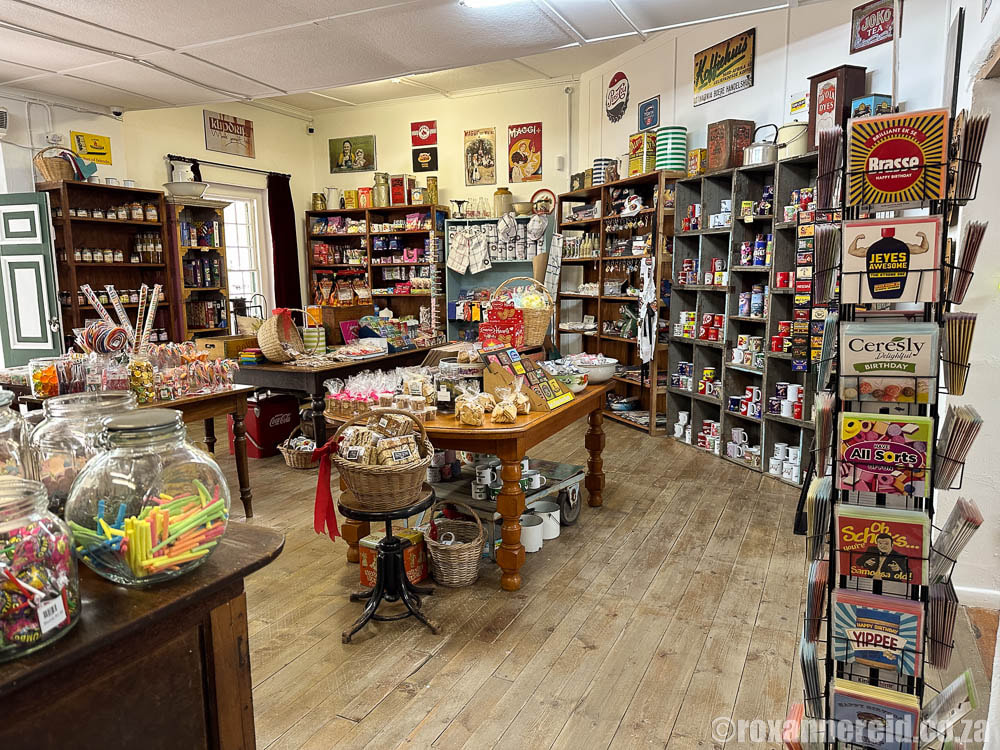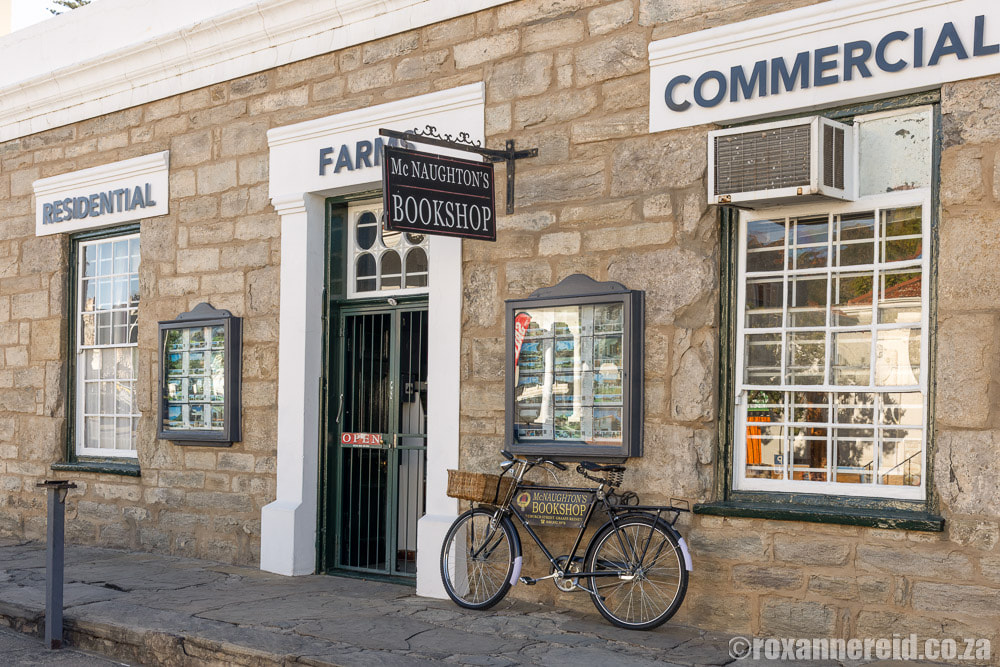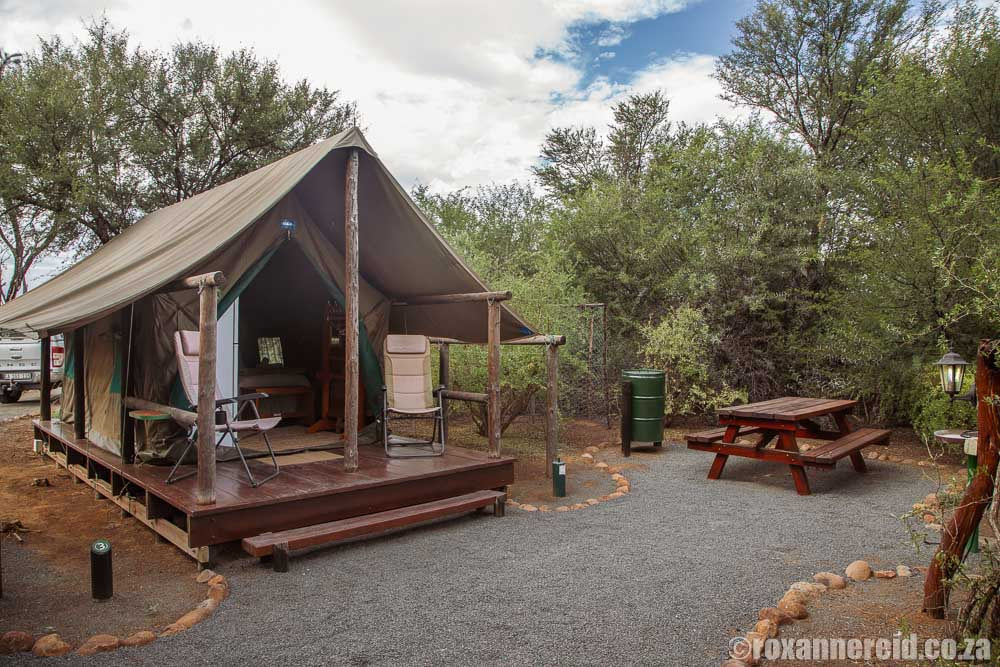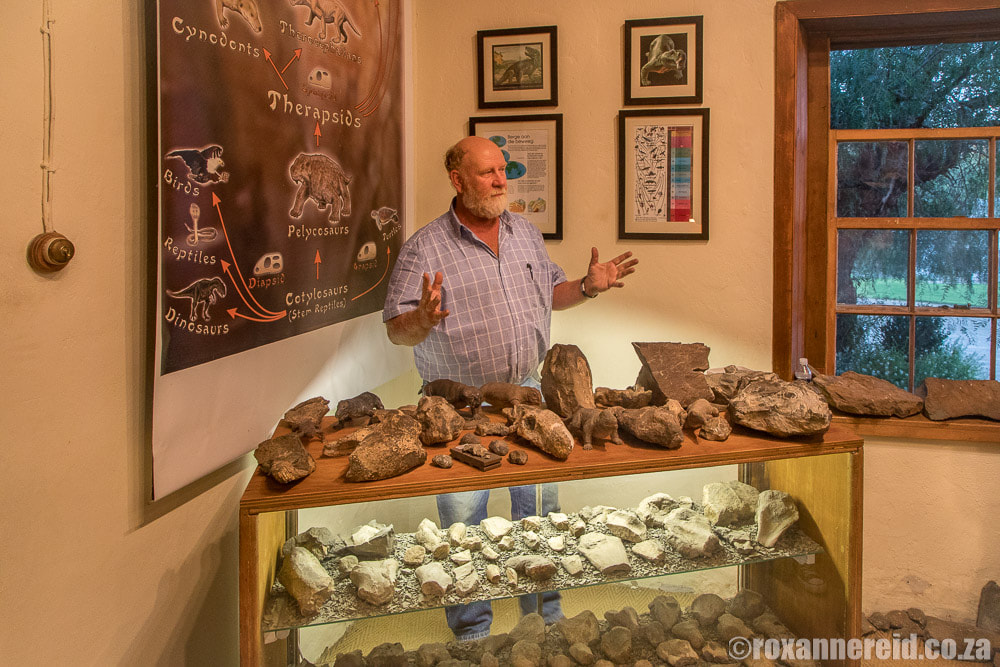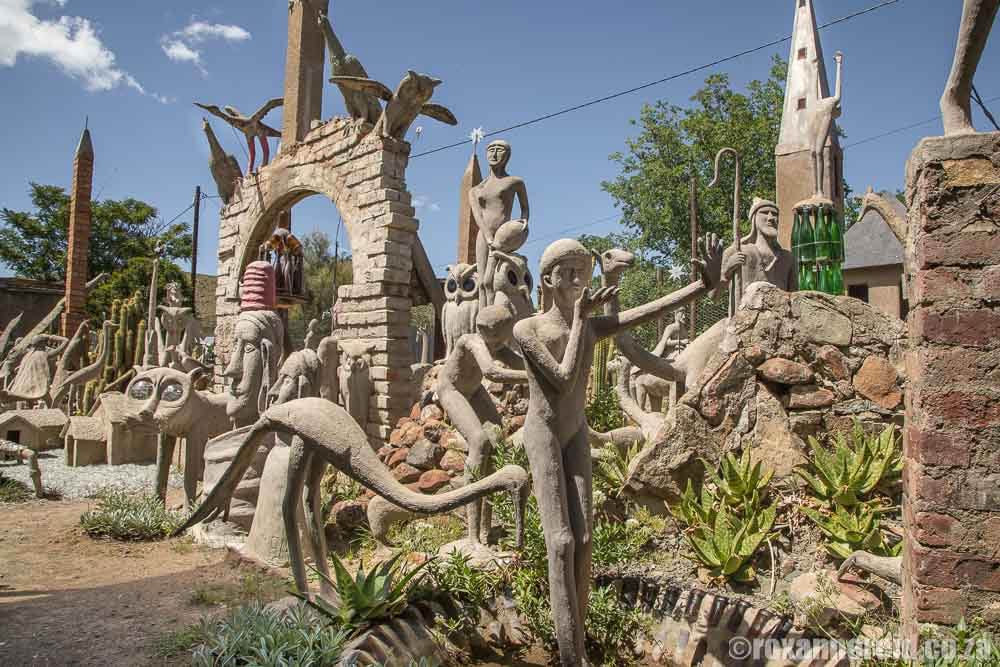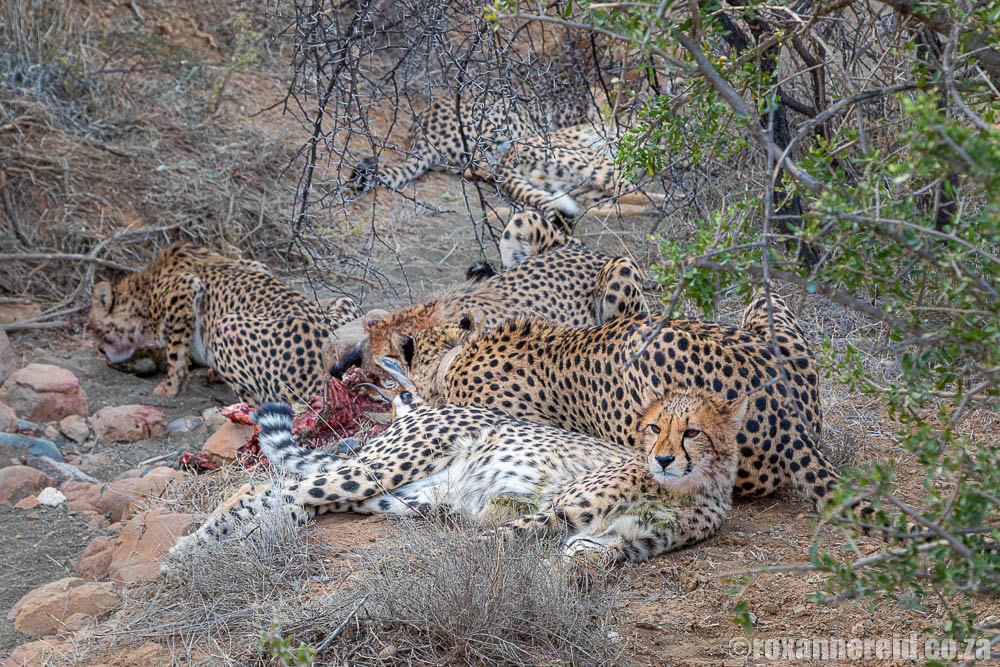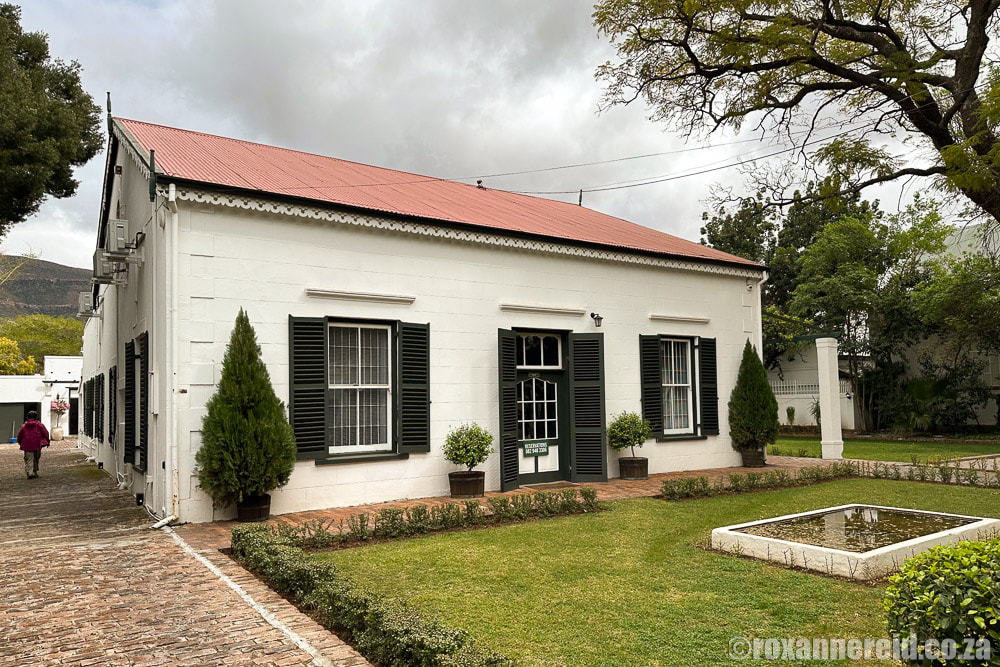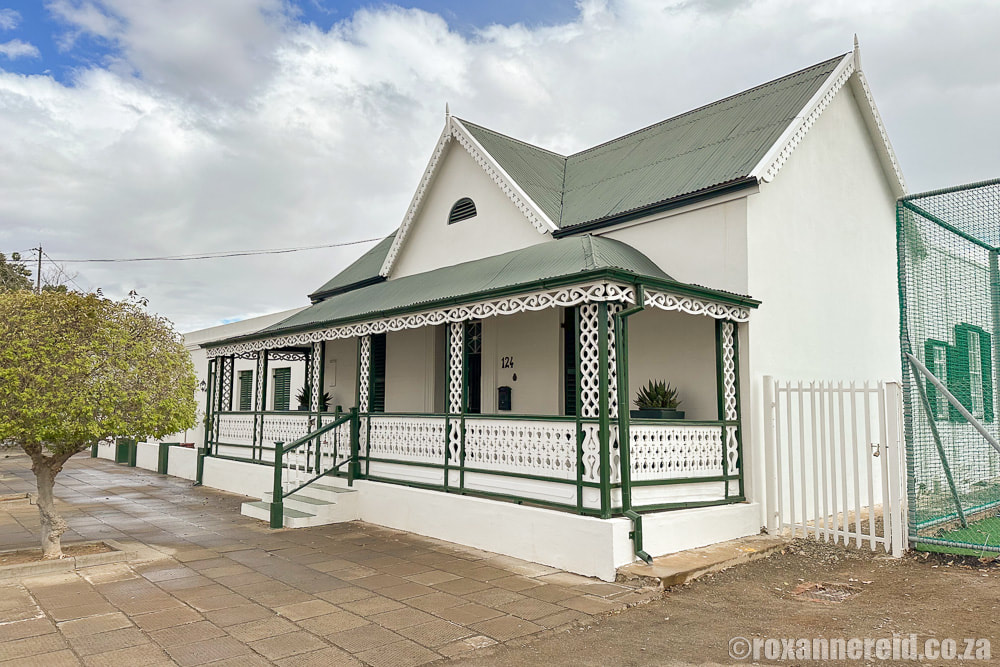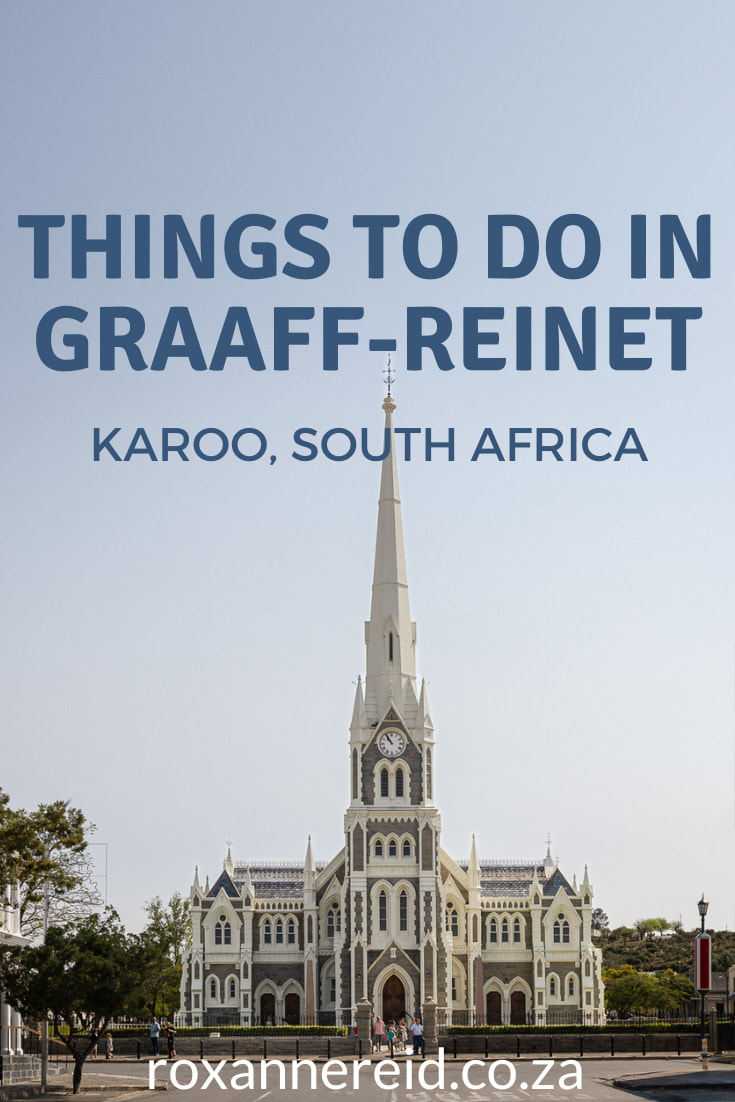By Roxanne Reid
If you love history and old buildings, you’ll love Graaff-Reinet in South Africa’s Eastern Cape. The town has more than 220 listed heritage sites, so there’s lots of history to be explored. If you love nature, you’re in luck too, given that the town is surrounded by 195 square kilometres of national park. Here’s my pick of things to do in Graaff-Reinet in the Karoo.
If you love history and old buildings, you’ll love Graaff-Reinet in South Africa’s Eastern Cape. The town has more than 220 listed heritage sites, so there’s lots of history to be explored. If you love nature, you’re in luck too, given that the town is surrounded by 195 square kilometres of national park. Here’s my pick of things to do in Graaff-Reinet in the Karoo.
Founded in 1786, Graaff-Reinet is the oldest town in the Eastern Cape and the town with the most historical monuments in the country. There’s a rich tapestry of Voortrekker history, Anglo Boer War history, and history connected to the freedom struggle. There’s also a lot of fun to be had in nature, from hiking and mountain biking, game drives and 4x4 trails, to fishing and water sports.
The town was named after the governor of the Cape Colony at the time, Cornelis Jacob van de Graaff, and his wife Cornelia Reinet. But here’s a fun fact: in 1795, peeved with the tax policies of the central government in faraway Cape Town, the feisty burghers declared themselves an independent colony. Sadly, it wasn’t long before they were brought to heel again.
Much of what has been preserved in Graaff-Reinet is thanks to Dr Anton Rupert who between 1965 and 1981 contributed towards restoring the most important buildings of the town in which he was born.
1. Pop into the tourism info centre
First thing to do is to find the tourism info centre in The Old Library at 17 Church Street. This is the place to get a walking map of the town and to buy your tickets for the museums (see point 2), either single entry or a 5-in-1. Explore the art gallery in the same building, which includes a giant fabric art piece by the artists of the Bethesda Arts Centre of the First People. It’s bound to inspire you to visit the Art Centre in Nieu Bethesda to see more of these art pieces and hear some of the fables that inspired them. There’s also a fossil collection and a wing devoted to Robert Sobukwe (see the Old Library Museum in point 2).
2. Visit museums and historical buildings
Much of what has been preserved in Graaff-Reinet is thanks to Dr Anton Rupert who between 1965 and 1981 contributed towards restoring the most important buildings of the town in which he was born.
1. Pop into the tourism info centre
First thing to do is to find the tourism info centre in The Old Library at 17 Church Street. This is the place to get a walking map of the town and to buy your tickets for the museums (see point 2), either single entry or a 5-in-1. Explore the art gallery in the same building, which includes a giant fabric art piece by the artists of the Bethesda Arts Centre of the First People. It’s bound to inspire you to visit the Art Centre in Nieu Bethesda to see more of these art pieces and hear some of the fables that inspired them. There’s also a fossil collection and a wing devoted to Robert Sobukwe (see the Old Library Museum in point 2).
2. Visit museums and historical buildings
There are more than 220 national monuments, historical buildings and memorials in Graaff-Reinet and it’s worth visiting at least some of them.
Reinet House, which used to be the Dutch Reformed church parsonage, now houses collections of silver, kitchen equipment, medical equipment, clothes and dolls, among others. I found the dolls from the Laubscher doll factory in Graaff-Reinet between 1914 and 1927 fascinating to compare to what was being produced in Europe at the time.
You can also see the second-oldest grape vine in South Africa (the oldest is in the Company’s Garden in Cape Town). The Graaff-Reinet one was planted in 1870 by Reverend Charles Murray and the single stem grew to a circumference of 3.1m before fungal rot set in. In 1983 the dead wood was removed to preserve the vine and now there’s a circle of separate stems.
The Old Residency diagonally across the street from Reinet House houses the William Roe photo exhibition, a fascinating collection of late 19th century photographs. There are also collections of old cameras, gramophones, giant music boxes still in working order, and a roomful of historical guns.
If you want a break from colonial history, visit the Old Library Museum in Church Street (in the same building as the tourism info centre) for some insight into the lives of slaves and the Khoi, as well as transformation history and displays about political activist and Pan African Congress founder, Robert Sobukwe, who was born and buried in Graaff-Reinet (see point 9).
Another museum well worth visiting is the Hester Rupert Art Museum in Church Street. Originally a church for coloured people, the building now houses a fine collection of artworks by South African artists like Gregoire Boonzaaier, Larry Scully, Cecil Skotnes, Walter Battiss, Eduardo Villa, Irma Stern and Maud Sumner.
There are lots of other historical buildings in town too, like the Drostdy in Church Street (now a hotel), the Graaff-Reinet Club (which is the second oldest club in the country and has bullet holes in the bar counter), the town hall in Church Square, and Te Water House on the corner of Somerset and Church streets, originally built in Cape Dutch style and later Victorianised. If you’d like to join a 2.5-hour walking tour of some of the historic buildings and learn their stories, talk to David McNaughton of Karoo Connections.
3. Admire the church
Reinet House, which used to be the Dutch Reformed church parsonage, now houses collections of silver, kitchen equipment, medical equipment, clothes and dolls, among others. I found the dolls from the Laubscher doll factory in Graaff-Reinet between 1914 and 1927 fascinating to compare to what was being produced in Europe at the time.
You can also see the second-oldest grape vine in South Africa (the oldest is in the Company’s Garden in Cape Town). The Graaff-Reinet one was planted in 1870 by Reverend Charles Murray and the single stem grew to a circumference of 3.1m before fungal rot set in. In 1983 the dead wood was removed to preserve the vine and now there’s a circle of separate stems.
The Old Residency diagonally across the street from Reinet House houses the William Roe photo exhibition, a fascinating collection of late 19th century photographs. There are also collections of old cameras, gramophones, giant music boxes still in working order, and a roomful of historical guns.
If you want a break from colonial history, visit the Old Library Museum in Church Street (in the same building as the tourism info centre) for some insight into the lives of slaves and the Khoi, as well as transformation history and displays about political activist and Pan African Congress founder, Robert Sobukwe, who was born and buried in Graaff-Reinet (see point 9).
Another museum well worth visiting is the Hester Rupert Art Museum in Church Street. Originally a church for coloured people, the building now houses a fine collection of artworks by South African artists like Gregoire Boonzaaier, Larry Scully, Cecil Skotnes, Walter Battiss, Eduardo Villa, Irma Stern and Maud Sumner.
There are lots of other historical buildings in town too, like the Drostdy in Church Street (now a hotel), the Graaff-Reinet Club (which is the second oldest club in the country and has bullet holes in the bar counter), the town hall in Church Square, and Te Water House on the corner of Somerset and Church streets, originally built in Cape Dutch style and later Victorianised. If you’d like to join a 2.5-hour walking tour of some of the historic buildings and learn their stories, talk to David McNaughton of Karoo Connections.
3. Admire the church
When you visit Graaff-Reinet, it’s impossible not to notice the extravagant Dutch Reformed church that dominates the northern end of the main street. Given the town’s long history, it’s no surprise that this isn’t the original church, but in fact the fourth. Built from grey sandstone quarried nearby, it opened for services in 1887. The Victorian pseudo-gothic style is reminiscent of Salisbury Cathedral in England, making it perhaps the grandest church in the whole of the Karoo. It’s also possibly the only church in South Africa that has a chimney (though I’m told it has never been used).
4. Explore the Camdeboo National Park
4. Explore the Camdeboo National Park
Explore some of the wonders of nature in the Camdeboo National Park that surrounds the town of Graaff-Reinet. It’s home to 43 mammal species like eland, kudu, buffalo, klipspringer, gemsbok, Cape mountain zebra, bat-eared fox and meerkat, more than 250 bird species, and some 330 plant species. Take a game drive, walk one of the hiking trails, drive a 4x4 trail, go fishing, knock yourself out with watersports at Nqweba dam (see point 6) or visit the amazing Valley of Desolation (see point 5). How special is it that the town is surrounded by so much nature?
The entrance gate and reception for game drives and the accommodation is off the N9, about 5km north of town.
If you’re a keen mountain biker, join Karoo 360 for a morning cycle into the Camdeboo National Park and surrounding farms, including a bush breakfast. It’s best to bring your own bike although they do have a few to rent.
Read more about Camdeboo National Park
5. Visit the Valley of Desolation
The entrance gate and reception for game drives and the accommodation is off the N9, about 5km north of town.
If you’re a keen mountain biker, join Karoo 360 for a morning cycle into the Camdeboo National Park and surrounding farms, including a bush breakfast. It’s best to bring your own bike although they do have a few to rent.
Read more about Camdeboo National Park
5. Visit the Valley of Desolation
Don’t miss a visit to the Valley of Desolation, particularly attractive when the rocks turn warm shades of ginger and apricot in the dwindling sunlight of late afternoon. Take the R63 (Murraysburg Road) north of town for about 7km and turn left to the park entrance gate. From here, a tarred road will lead you to the Valley of Desolation almost 9km away. Since this is part of the Camdeboo National Park, you may see wildlife like kudu or Cape mountain zebra along the way.
Your first stop should be the toposcope, where you can walk up a koppie to get a view over the town and the dam. Continue to the parking area a kilometre or two further on. Leave your car and walk to various viewpoints over the Valley of Desolation to see the result of volcanic activity and erosion over millions of years. Marvel at the steep cliffs and dolerite pillars climbing 120m from the valley floor, look out over the plains of the Camdeboo, or walk the short Crag Lizard Trail.
6. Enjoy the Nqweba Dam
Your first stop should be the toposcope, where you can walk up a koppie to get a view over the town and the dam. Continue to the parking area a kilometre or two further on. Leave your car and walk to various viewpoints over the Valley of Desolation to see the result of volcanic activity and erosion over millions of years. Marvel at the steep cliffs and dolerite pillars climbing 120m from the valley floor, look out over the plains of the Camdeboo, or walk the short Crag Lizard Trail.
6. Enjoy the Nqweba Dam
Nqweba Dam, which used to be called the Van Ryneveld Dam, was built in 1924. It’s fed by the Sundays River and covers some 1000 hectares. To make the most of the dam and its environs, go birding (it’s a good place to find water birds, including flamingos), picnicking, fishing in the angling zone (you need a permit from the SANParks office) or canoeing and windsurfing from the spillway at the Graaff-Reinet Boat Club.
7. Visit the Obesa cactus nursery and garden
7. Visit the Obesa cactus nursery and garden
You ain’t seen nothing like this. Big, small, squat or long, there are thousands of cacti and succulents in the Obesa cactus nursery and garden. Some of them are more than 50 years old. Retired criminal lawyer Johan Bouwer started planting them from seed around 1960 and it became something of an obsession.
Take an adventurous walk along the marked path around the garden (just avoid the prickles) and you’ll be amazed at the variety and number of them. In some places the cacti are so big they even create shady areas. When we visited, some were on the verge of flowering and it occurred to me how colourful the garden must be when many of them are in bloom.
We asked Johan how many different species there are in his garden and nursery and he told us that last time he counted was in 2012, when it was 7200. Then he realised counting was all about testosterone and ego so he hasn’t counted since then although he has continued to propagate new species. It’s the largest private collection in the world.
Quite a character, Johan is interesting to talk to, with strong opinions on everything from politics to religion and racism. He is cactus-prickly to Americans who may have voted for Donald Trump, so lose that American accent before your visit! And if you’re sensitive about swearing, don’t engage him in conversation because every sentence is peppered with a few f-bombs.
Your guess is as good as mine as to the best time to visit, although it does seem to be open in the mornings and closed in the afternoons. The sign on the gate declares: ‘Opening time – when gates are open; closing time – when gates are closed.’ Another might say: ‘Closed – not my day for humans.’ But I can promise you it’s worth making a second attempt if you don’t strike it lucky the first time.
8. Find some of the monuments
Take an adventurous walk along the marked path around the garden (just avoid the prickles) and you’ll be amazed at the variety and number of them. In some places the cacti are so big they even create shady areas. When we visited, some were on the verge of flowering and it occurred to me how colourful the garden must be when many of them are in bloom.
We asked Johan how many different species there are in his garden and nursery and he told us that last time he counted was in 2012, when it was 7200. Then he realised counting was all about testosterone and ego so he hasn’t counted since then although he has continued to propagate new species. It’s the largest private collection in the world.
Quite a character, Johan is interesting to talk to, with strong opinions on everything from politics to religion and racism. He is cactus-prickly to Americans who may have voted for Donald Trump, so lose that American accent before your visit! And if you’re sensitive about swearing, don’t engage him in conversation because every sentence is peppered with a few f-bombs.
Your guess is as good as mine as to the best time to visit, although it does seem to be open in the mornings and closed in the afternoons. The sign on the gate declares: ‘Opening time – when gates are open; closing time – when gates are closed.’ Another might say: ‘Closed – not my day for humans.’ But I can promise you it’s worth making a second attempt if you don’t strike it lucky the first time.
8. Find some of the monuments
Given Graaff-Reinet’s history as the Eastern Cape’s oldest town, it’s no surprise that it has numerous monuments that those with an historical bent may want to track down.
For me, one of the most interesting because of its uniqueness is the small monument to the Jewish pedlars just outside the Police College in College Road on the southern outskirts of town. It remembers the Jewish smouse, or pedlars, who roamed the remote areas of the Karoo from the 1700s, bringing with them the necessities of daily life – and often welcome news of the surrounding areas too. Their contribution to the economic growth of the interior was enormous.
Given my interest in the Anglo Boer War, the Anglo Boer War monument at the corner of Somerset and Donkin Streets is another favourite. The Italian marble statue shows a Boer soldier holding a rifle and commemorates Boer soldiers from the area who died in the Anglo Boer War.
You can find a monument to Gideon Scheepers on the R63 to Murraysburg, just outside town. Scheepers and seven fellow soldiers were captured by the British, charged with being traitors to the British Cape Colony and executed by firing squad. There’s a 2km walk that starts at the monument.
Some others include a monument to Great Trek leader Andries Pretorious near reception in the Camdeboo National Park, a Huguenot monument in Church Square, a Fallen Heroes monument on the N9 that lists 77 names of Graaff-Reinet activists who suffered under the apartheid government, and a San and Khoi Genocide memorial on the N9 south of town that has sadly been damaged since it was unveiled in 2006.
9. Visit Robert Sobukwe’s birthplace
In Umasizakhe township, the origins of which go back to 1857, you can see the house where Pan African Congress founder Robert Sobukwe was born in 1924. Unfortunately, plans to get it under the museum’s control haven’t got off the ground so although you can see it from the outside, you can’t visit inside because it’s privately owned. Sobukwe’s grave in Kroonvale cemetery was restored in 2014.
There’s also a dedicated wing in the Old Library Museum with many info panels about Sobukwe’s life and death, and the formation of the Pan African Congress in 1959 (see point 2).
For a 2.5-hour walkabout tour of the township to learn about Xhosa language and culture and visit a local project, talk to David McNaughton of Karoo Connections.
10. Eat at Graaff-Reinet restaurants
For me, one of the most interesting because of its uniqueness is the small monument to the Jewish pedlars just outside the Police College in College Road on the southern outskirts of town. It remembers the Jewish smouse, or pedlars, who roamed the remote areas of the Karoo from the 1700s, bringing with them the necessities of daily life – and often welcome news of the surrounding areas too. Their contribution to the economic growth of the interior was enormous.
Given my interest in the Anglo Boer War, the Anglo Boer War monument at the corner of Somerset and Donkin Streets is another favourite. The Italian marble statue shows a Boer soldier holding a rifle and commemorates Boer soldiers from the area who died in the Anglo Boer War.
You can find a monument to Gideon Scheepers on the R63 to Murraysburg, just outside town. Scheepers and seven fellow soldiers were captured by the British, charged with being traitors to the British Cape Colony and executed by firing squad. There’s a 2km walk that starts at the monument.
Some others include a monument to Great Trek leader Andries Pretorious near reception in the Camdeboo National Park, a Huguenot monument in Church Square, a Fallen Heroes monument on the N9 that lists 77 names of Graaff-Reinet activists who suffered under the apartheid government, and a San and Khoi Genocide memorial on the N9 south of town that has sadly been damaged since it was unveiled in 2006.
9. Visit Robert Sobukwe’s birthplace
In Umasizakhe township, the origins of which go back to 1857, you can see the house where Pan African Congress founder Robert Sobukwe was born in 1924. Unfortunately, plans to get it under the museum’s control haven’t got off the ground so although you can see it from the outside, you can’t visit inside because it’s privately owned. Sobukwe’s grave in Kroonvale cemetery was restored in 2014.
There’s also a dedicated wing in the Old Library Museum with many info panels about Sobukwe’s life and death, and the formation of the Pan African Congress in 1959 (see point 2).
For a 2.5-hour walkabout tour of the township to learn about Xhosa language and culture and visit a local project, talk to David McNaughton of Karoo Connections.
10. Eat at Graaff-Reinet restaurants
Karoo food is justly famous so treat your tastebuds at some Graaff-Reinet restaurants. Think Karoo lamb, heartwarming meat dishes and those queens of vegetables, the pumpkin and sweet potato – and, of course, malva pudding.
It was raining when we visited The Coldstream Restaurant so we sat inside the historic building that also houses the Graaff-Reinet Club. When it’s fine, it’s lovely to sit on the terrace in a shady garden, with a play area to keep the kids entertained. The building is named after the officers of the 2nd Battaltion Coldstream Guards. We enjoyed a very nice chicken schnitzel, tender rump steak, and crème brulee. The menu also includes items like wood-fired pizzas, pasta, pie and chips, burgers, toasties, and that classic Karoo dessert, malva pudding. Good value.
Frontiers is another restaurant situated in a historic building, this time in Parsonage Street. The décor is white and clean and cool, with a fireplace for cold winters. Typical Karoo menu choices include lamb chops, lamb shank and bobotie, while oxtail, venison pie, burgers and pasta also make an appearance.
At Our Yard in Somerset Street we enjoyed the lovely courtyard setting, a good cup of coffee from Maria’s Roastery, and a light meal of toasties. They also have flatbreads, quiche, bobotie spring rolls, or more substantial meals like burgers, lamb chops, chicken schnitzel, or pasta.
Right next door is Hello You, another delightful place where you can sit inside among the warmth of wooden floors and old-fashioned fireplaces, or outside under a pergola. Enjoy small plates, pizzas, salads, or heartier meals like burgers, pasta, lamb chops, rump steak, or venison. You can also do a tasting of Afrikanis rum made here in the Karoo. Taste it three different ways for a set fee, or try one of their Afrikanis cocktails.
Frontiers is another restaurant situated in a historic building, this time in Parsonage Street. The décor is white and clean and cool, with a fireplace for cold winters. Typical Karoo menu choices include lamb chops, lamb shank and bobotie, while oxtail, venison pie, burgers and pasta also make an appearance.
At Our Yard in Somerset Street we enjoyed the lovely courtyard setting, a good cup of coffee from Maria’s Roastery, and a light meal of toasties. They also have flatbreads, quiche, bobotie spring rolls, or more substantial meals like burgers, lamb chops, chicken schnitzel, or pasta.
Right next door is Hello You, another delightful place where you can sit inside among the warmth of wooden floors and old-fashioned fireplaces, or outside under a pergola. Enjoy small plates, pizzas, salads, or heartier meals like burgers, pasta, lamb chops, rump steak, or venison. You can also do a tasting of Afrikanis rum made here in the Karoo. Taste it three different ways for a set fee, or try one of their Afrikanis cocktails.
Don’t miss spending some time on the patio at De Camdeboo restaurant at the Drostdy Hotel, either for a meal or simply to enjoy a cup of coffee or a glass of wine. Wander through the reception rooms and gardens of the historic hotel afterwards – they’re beautiful. The lunch menu includes burgers, toasties, wraps, pizzas, and salads, while the dinner menu has classics like pork belly, lamb chops, lamb pie, oxtail, lamb curry, and pasta.
11. Go shopping
11. Go shopping
I’m not a big fan of shopping but there are a few shops in Graaff-Reinet I find hard to resist. For instance, I love the colourful Ouma’s Country Store in Bourke Street, packed with old-fashioned sweets your granny might remember, as well as socks and towels celebrating old brands, tin signs, old Vim cartons, some draadkarre, and leather goods.
Karoo gift and lifestyle store The Windmill Junction in Somerset Street is a browser’s delight, selling everything from leather goods, accessories and jewellery to homeware and body care products.
Karoo gift and lifestyle store The Windmill Junction in Somerset Street is a browser’s delight, selling everything from leather goods, accessories and jewellery to homeware and body care products.
If you’re a book lover, you won’t want to miss McNaughton’s Bookshop for a really good selection of both new and used books, with a particularly good collection of Karoo treasures. Find it in an old stone building in Church Street.
12. Stay over in Graaff-Reinet accommodation
12. Stay over in Graaff-Reinet accommodation
There’s so much to see and do in and around the town that you’ll definitely want to look for some Graaff-Reinet accommodation. Whatever your desire, you can find it, from self-catering cottages to the historic five-star Drostdy Hotel, even glamping at Lakeview Tented Camp or camping at Nqweba in the Camdeboo National Park about 5km from the centre of town.
Staying over for at least two or three days not only allows you time to do and see all that Graaff-Reinet has to offer, it gives you a chance to walk the streets at dawn or dusk when they’re quiet, to take photos of the beautiful old buildings when the light is right, and visit the Valley of Desolation (see point 5) at the most beautiful time of day.
Check Graaff-Reinet Tourism’s website for a host of accommodation listings, or simply Google ‘Graaff-Reinet accommodation’ and sites like Lekkeslaap, Afristay or SA-Venues will pop up with a whole bunch of options for a range of budgets.
13. Find fossils
Check Graaff-Reinet Tourism’s website for a host of accommodation listings, or simply Google ‘Graaff-Reinet accommodation’ and sites like Lekkeslaap, Afristay or SA-Venues will pop up with a whole bunch of options for a range of budgets.
13. Find fossils
If you know anything about the Karoo, you’ll know that it’s a treasure trove of ancient fossils from even before dinosaurs walked the earth. You can see a bunch of these at the Old Library Museum next to the tourism info office (see point 2).
Many of the farms in the Graaff-Reinet and Nieu Bethesda area have collections of fossils found in the veld, such as Wellwood Farm (home of palaeontologist Bruce Rubidge) and Ganora Guest Farm, where you can take a day’s excursion if you book ahead. Ganora co-owner and sheep farmer JP Steynberg is something of a fossil whisperer and has discovered some amazing specimens in his 25 years on the farm, which he’s enthusiastic about sharing with visitors. If you think fossils are boring, you haven’t met JP.
Karoo Connections also offers half- or full-day tours to see rock paintings and Bushman artefacts as well as a fossil museum to learn more about the palaeontology of the Karoo.
14. Take a day trip to Nieu Bethesda's Owl House
Many of the farms in the Graaff-Reinet and Nieu Bethesda area have collections of fossils found in the veld, such as Wellwood Farm (home of palaeontologist Bruce Rubidge) and Ganora Guest Farm, where you can take a day’s excursion if you book ahead. Ganora co-owner and sheep farmer JP Steynberg is something of a fossil whisperer and has discovered some amazing specimens in his 25 years on the farm, which he’s enthusiastic about sharing with visitors. If you think fossils are boring, you haven’t met JP.
Karoo Connections also offers half- or full-day tours to see rock paintings and Bushman artefacts as well as a fossil museum to learn more about the palaeontology of the Karoo.
14. Take a day trip to Nieu Bethesda's Owl House
Take a drive to the quaint little village of Nieu Bethesda in a valley some 50km from Graaff-Reinet to see Helen Martins’ Owl House, with its brightly painted and glass-encrusted interiors, its cement owls, humans, camels and other creatures inspired by the bible, and the poetry of Omar Khayam and William Blake. It’s a journey into another world and a gripping look at the imagination of this ‘outsider artist’ of the Karoo.
Read about more things to do in Nieu Bethesda
15. Splurge on a luxury safari
Read about more things to do in Nieu Bethesda
15. Splurge on a luxury safari
If you’re looking for a treat experience, go on an Eastern Cape safari at Samara Karoo, about 25km from Graaff-Reinet, to see animals like elephant, lion, buffalo, cheetah, mountain zebra, giraffe and aardvark. This private reserve doesn’t offer day-trips but if you have the budget, it’s well worth while to stay a night or two and enjoy the guided game drives and warm Karoo hospitality.
Note: Obviously, this isn’t an exhaustive list of everything there is to do in Graaff-Reinet. Pop into the tourism office in Church Street (see point 1) for more options that interest you.
Getting to Graaff-Reinet
You’ll find Graaff-Reinet on the N9 in the Great Karoo, about 200km south-west of Colesberg. It’s some 660km from Cape Town, 260km from Gqeberha (Port Elizabeth), and 820km from Johannesburg. Find it on Google Maps here.
Note: Obviously, this isn’t an exhaustive list of everything there is to do in Graaff-Reinet. Pop into the tourism office in Church Street (see point 1) for more options that interest you.
Getting to Graaff-Reinet
You’ll find Graaff-Reinet on the N9 in the Great Karoo, about 200km south-west of Colesberg. It’s some 660km from Cape Town, 260km from Gqeberha (Port Elizabeth), and 820km from Johannesburg. Find it on Google Maps here.
Best time to visit Graaff-Reinet
Being in the Great Karoo, Graaff-Reinet can be expected to have hot summers, with temperatures getting into the mid 30s (Celsius) and occasionally as high as the low 40s. November to March are the hottest months. Winter days are balmy, though early mornings and evenings can be cold, with temperatures of 4 degrees not uncommon from June to August, and occasional falls to zero or less. Winters are windy, and snow sometimes falls on the mountain peaks around the town.
Rain falls throughout the year in Graaff-Reinet, with November to March the wetter months and April to September comparably dry. There will usually be around 235 days of the year with no rain.
Because I hate getting overheated and because rain can scupper plans for outdoor activities and photography, my favourite times to visit are the months of April/May and August/September.
Being in the Great Karoo, Graaff-Reinet can be expected to have hot summers, with temperatures getting into the mid 30s (Celsius) and occasionally as high as the low 40s. November to March are the hottest months. Winter days are balmy, though early mornings and evenings can be cold, with temperatures of 4 degrees not uncommon from June to August, and occasional falls to zero or less. Winters are windy, and snow sometimes falls on the mountain peaks around the town.
Rain falls throughout the year in Graaff-Reinet, with November to March the wetter months and April to September comparably dry. There will usually be around 235 days of the year with no rain.
Because I hate getting overheated and because rain can scupper plans for outdoor activities and photography, my favourite times to visit are the months of April/May and August/September.
Towns to visit on the way to/from Graaff-Reinet
Nieu Bethesda – 54km away
Aberdeen – 58km
Middelburg – 108km
Somerset East – 126km
Cradock – 140km
Willowmore – 173km
Beaufort West – 205km
You may also enjoy
Camdeboo National Park: the ultimate guide
17 things to do in Nieu Bethesda in the Karoo
The Owl House Nieu-Bethesda: a world Helen Martins created
Like it? Pin this image!
Nieu Bethesda – 54km away
Aberdeen – 58km
Middelburg – 108km
Somerset East – 126km
Cradock – 140km
Willowmore – 173km
Beaufort West – 205km
You may also enjoy
Camdeboo National Park: the ultimate guide
17 things to do in Nieu Bethesda in the Karoo
The Owl House Nieu-Bethesda: a world Helen Martins created
Like it? Pin this image!
Copyright © Roxanne Reid – No words or photographs may be used without permission from roxannereid.co.za

